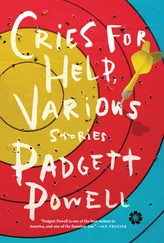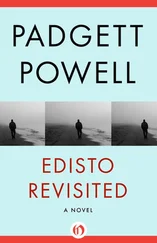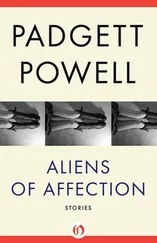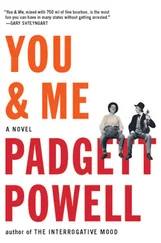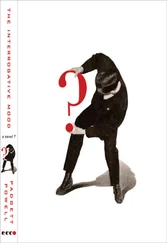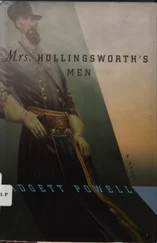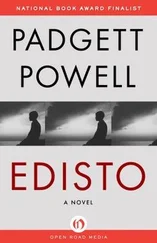Lanxang is small but important because it is contiguous to — a bridge connecting, therefore — two other small and likewise important places of the earth. The smaller the place, we have come to note on this tour, the more important. “What is a continent but spoonfuls of dirt?” Mr. Irony asked, early on, before the rest of us had arrived at this logic.
“Oh brother,” one of the Traveling Women said. She became with that remark not Mr. Irony’s but my Traveling Woman.
“Indulgences!” Mr. Irony proclaimed, his call to order for word jazz. He slapped his elephant’s hide. “The head of my animal is a small V-8 engine covered by slab bacon.”
“Fatback.”
“Fatback with hairs.”
“A hemi. A flat-head. Not a V-8.”
“Who said that?” Mr. Irony asked. “The girl from Pampa or the girl from Borger?”
“The girl from Borger,” the girl from Pampa said. “Her daddy raced.”
“Flat-head has some merit, indeed.”
“Gray twelve-gauge Naugahyde,” the girl from Pampa said.
“Fatback, gray-brown, boar-bristled, flat-head six underneath,” said Mr. Irony.
“Never forgetting,” said Pampa.
“An elephant’s timing chain of memory never breaks,” said Borger.
“We are astride some fine beast.”
I don’t indulge. I am beginning to doubt the wisdom of my appointment to Mr. Irony.
The tent was filled with censers and their various sweet smokes, and we were sitting foursquare to a hookah in the middle.
Someone, holding breath, said, “What kind dope?”
Someone else, holding, shrugging, said, “’on’t know.”
“Man at His Best,” Mr. Irony intoned, “asks not what specie of intoxicant his hosts provide.” Then he addressed the girl from Pampa. “Her daddy raced. What yours?”
“My daddy sat on his Texass in a Barcalounger size of a Lincoln.” She pulled on the hookah. Mr. Irony studied her. With her lungs at full expansion, letting no smoke escape, she said: “Come I know Naugahyde.”
In relation to elephants, to the canvas and skins around us and under us, Naugahyde was a mysterious thing to think about just then, and Mr. Irony accordingly announced “Indulgences!” and slapped a provision crate with sufficient speed and force that everyone exhaled, losing smoke.
Spontaneously, my girl from Pampa indulged: “He was a lardass from the gitgo. Had all he ever wanted, so all he wanted was to git rid of that and git shit he didn’t want. We had land, oil, stock, and three TV’s in a wall-bank, like Elvis and Lyndon. The recliner had motors in it like a hospital bed — drive it around, too. Vibrated, heated up, everything. Air brakes. It came in leather. Then he heard about Naugahyde. Had to have it. Drove the lounger down to the upohster’s, rip rap.”
“One is cautioned by all sense against becoming fond of an Available Traveling Woman,” Mr. Irony said. “Damned if the temptation does not accrue.”
“Who?” his girl from Borger said. “Her? Shoot. She’s a card. I coulda tole y’all that.”
“Had a refrigerator in it, under his ass.”
We started laughing then, unstoppable dope laughter, fueled on knowing there’s nothing so finally funny enough to cause such paroxysms. To the upohster’s, someone kept repeating as we came up for air, sending us back under again. We were prostrate in a tent carpeted of animal hides, noses in fur, thinking of Naugahyde, unable to breathe.
At Jack London’s Trading Post and Juice Bar/Trail Foods, Inc., we outfit for a brief walk on what Duke details as “the tundra.”
“The parka with raglan sleeves for me, I favor Lord Raglan,” Mr. Irony tells a clerk. “Anoraks for the anorectics,” he says, with an impatient wave at the Traveling Women, who ignore him. They are feeling the goods: the down-filled, the corduroy, the leather, siliconed, mink-oiled.
Dressed out, fat as bales of cotton, we look not unlike designer astronauts, and we clod into the Juice Bar, where we all four enjoy White Fang Smoothies before stepping out on the tundra.
“Tundra? I’ve led cheers on ground worse’n this,” a Traveling Woman says. “In Pampa.”
“Just enough bad ground to scuff up our moon boots, ladies,” Mr. Irony says. “That’s the objective here, I daresay. Man at His Best not to be seen in new shoes.”
Riding a Galapagos tortoise, Mr. Irony says, “I do not recall ever feeling so at home.”
The tortoise’s head, high up, looks not altogether different from Mr. Irony’s head, which is only a bit larger and a little higher than the reptile’s. Mr. Irony’s knees are up also, his cowboy boots in carved notches of the carapace.
“It seems to me all we do on this Duke tour is ride things, jump off things, slip and bust our ass on things,” one of the Traveling Women says.
“Man at His Best,” the other offers.
“Komodo dragons next, ladies. Flesh-eaters,” Mr. Irony says. They do not respond. They have read ahead the literature and know that we are scheduled to ride no dragons. Next we dance in grass skirts before tourists drinking drinks from coconut shells, dance across an atoll.
Mr. Irony’s reptilian steed stops to graze on what looks like a small cabbage. Mr. Irony sits sidesaddle, lights a cigarette. “These old boys know what they are about. I would not presume to hurry the duocentenarian.” The tortoise eats with surprising waste, cabbage bits at times even on top of his head. “It is possible,” Mr. Irony says, watching him scatter his meal, “to hazard another end for the dinosaur: inefficient table dexterity.”
“I shall inquire if one is permitted to own for himself so measured a hedon,” Mr. Irony says. “I shall walk him in Central Park, at night.”
“Mr. Irony, what is your position on the Good Ole Days?”
“What you mean?”
“I get the notion, from no particular event, that when one is correctly minimalized and hedged up with self-deprecating irony, et cetera, that one doesn’t — can’t, by definition — afford to care about the Good Ole Days.”
“I don’t understand you,” Mr. Irony says.
I take this for an evasion. I am on to something but I have asked it too directly — I have asked it at all.
This whole business of his sitting with such fondness on a two-hundred-year-old turtle is a way, as I see it, of disowning a more recent time, a time, say, of tricycle-sitting sullied somehow by a dominating father; a time after which boyish enthusiasms became adolescent agonies became adultish early losses and defeats, leading Mr. Irony to the defensive position of assuming that things don’t turn out well. Sitting astride a dinosaur confirms him, proves in a tacit, cabbage-bashing fashion that the Good Ole Days are the fluff of myth. The truth for Mr. Irony is extinction, a brief run through the ironic daily maze and not dying yet. On his tortoise, Mr. Irony looks as composed and serene as an underfed Buddha.
“You been having both the women?” he suddenly asks.
“Sir! Both got in my tent, both — well, pleasured. But the seed only in one.”
“Still, you put your trocar in mine, too.”
“Yes, sir. It’s—”
“Understandable. My fault. I shall seek to win back my Available Traveling Woman shortly.”
“Good, sir. I—”
“Shut up.”
For three days we live in enamel tubs, under steamed towels, on massage tables, in Hot Springs, Ark.
“This is geezerhood, but it’s nice, but it’s still geezerhood,” the Borger Traveling Woman says. After the second day, Pampa says, “I feel like a grub.”
Mr. Irony has acquired a laboratory wash bottle, one liter Nalgene, which he fills with vodka before a day in the baths, and when an attendant instructs him to drink the hot spring water (“to warm your insides”) from a proffered folding paper cup, Mr. Irony produces from the tub of 110-degree water in which he reposes the wash bottle — he smiles and squirts a stream of hot vodka in, nodding the attendant away.
Читать дальше

